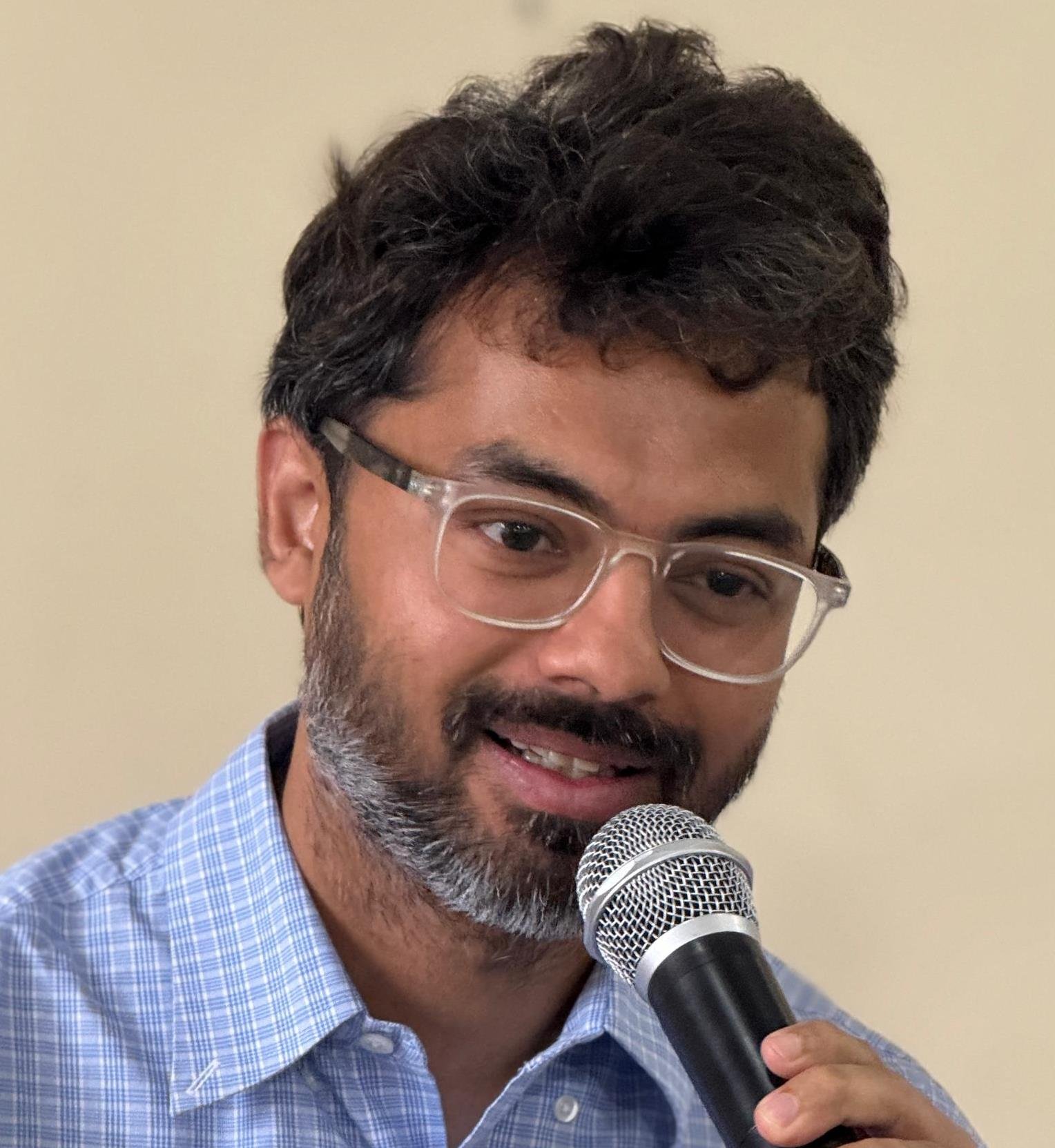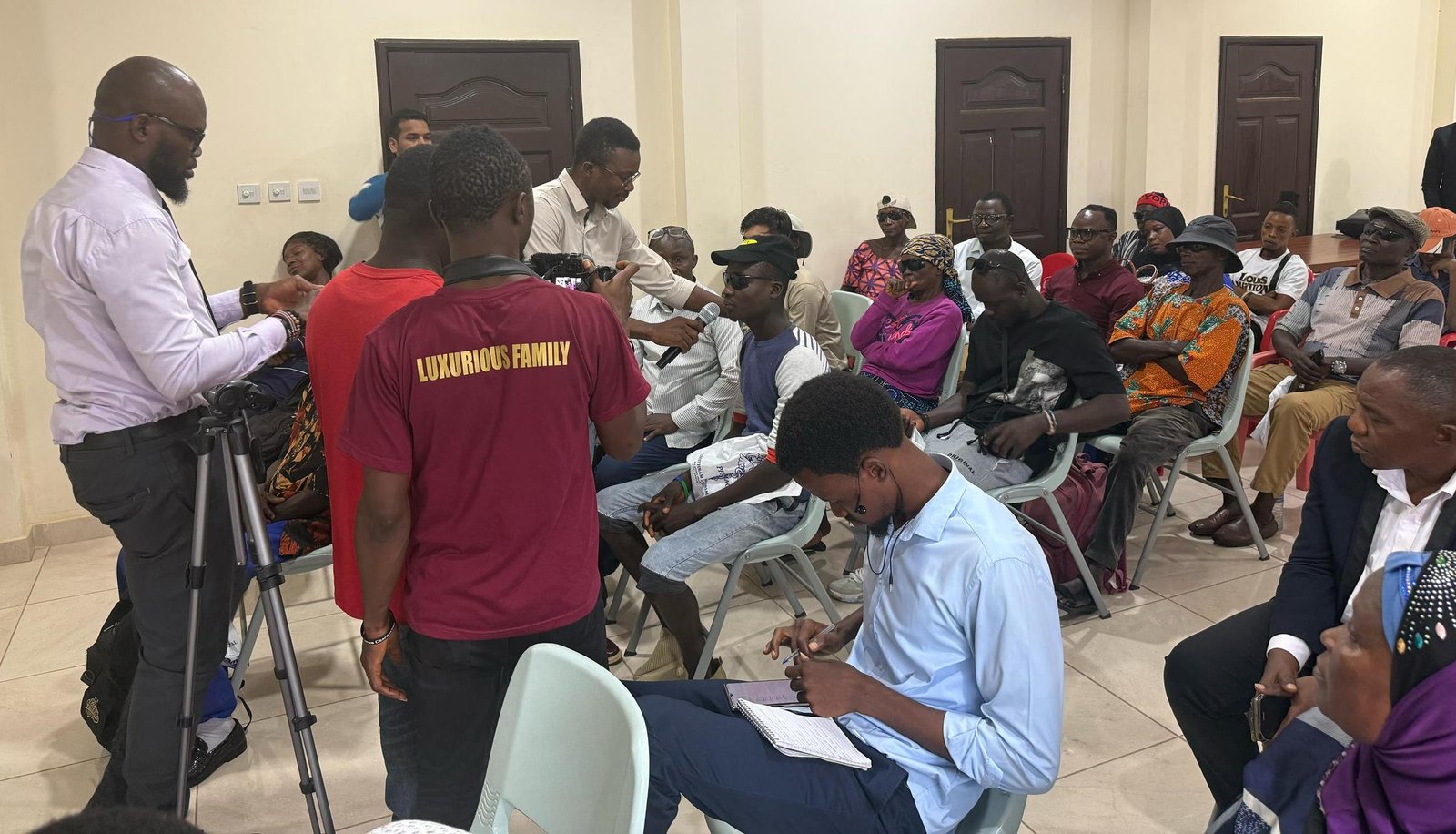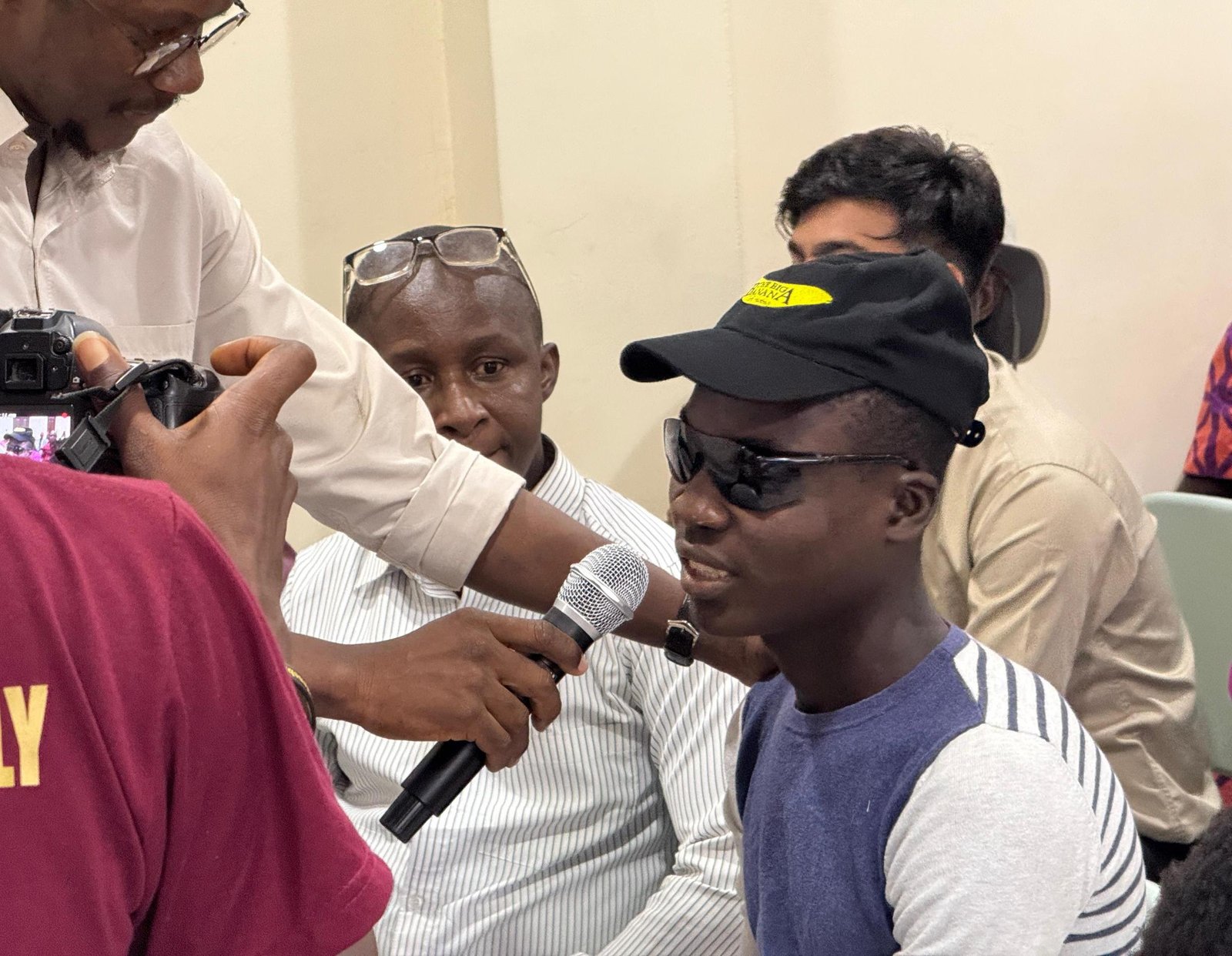By Ibrahim Sesay
In an impressive initiative aimed at addressing blindness on many people in Sierra Leone, Choithram Memorial Hospital, in collaboration with the Ministry of Health, hosted a media briefing on Thursday, April 24, 2025, to update the public on the progress of its ongoing Free Cataract Surgical Camp.
Held at the hospital’s conference hall, the event showcased the incredible impact the initiative has had on individuals suffering from visual impairment, with many beneficiaries regaining their sight.
 Harish Agnani, a key figure in the project, explained that their free surgeries are part of a four-month program, with a team of medical specialists from India visiting each month to perform the operations. “So far, we have completed one hundred and ninety (190) successful surgeries, with two thousand screenings conducted,” Harish Agnani revealed.
Harish Agnani, a key figure in the project, explained that their free surgeries are part of a four-month program, with a team of medical specialists from India visiting each month to perform the operations. “So far, we have completed one hundred and ninety (190) successful surgeries, with two thousand screenings conducted,” Harish Agnani revealed.
He further emphasized that the goal of the initiative is to perform one thousand (1,000) cataract surgeries over a four-month period. Notably, the program is not just focused on Freetown, as Harish Agnani highlighted that patients from across the country, including the provinces, are welcomed to take advantage of the opportunity.
 “We do not only offer free cataract surgeries but also provide transportation allowances for those traveling from the provinces.
“We do not only offer free cataract surgeries but also provide transportation allowances for those traveling from the provinces.
Additionally, he said “we give each patient NLe 400 for their meals during their stay in Freetown,” he added, underlining the holistic nature of the initiative.
 Harish Agnani expressed his gratitude to the Ministry of Health for their unwavering collaboration and support throughout the process, as well as to Choithram International Foundation for facilitating the arrival of skilled health professionals through Choithram Netralaya in India.
Harish Agnani expressed his gratitude to the Ministry of Health for their unwavering collaboration and support throughout the process, as well as to Choithram International Foundation for facilitating the arrival of skilled health professionals through Choithram Netralaya in India.
Dr. Gowrinath M. George, the Medical Superintendent of Choithram Memorial Hospital, also spoke at the briefing, acknowledging that the screening process in the provinces had been slower than expected. “We suspect this delay might be due to the difficult terrain in some areas, but we remain hopeful that more people from the provinces will take advantage of this opportunity as the campaign progresses,” he explained.
 Adding a medical perspective, Dr. Dhaivat Shah, one of the Indian surgeons involved in the program, shared an interesting revelation during the screening process.
Adding a medical perspective, Dr. Dhaivat Shah, one of the Indian surgeons involved in the program, shared an interesting revelation during the screening process.
“While we initially focused on cataract surgeries, we have discovered other serious eye conditions such as retinal detachment and glaucoma,” Dr. Dhaivat Shah said.
“We are gradually addressing these issues as we move forward with our operations, which is a positive development that goes beyond just cataracts.”
Dr. Lloyd Harrison-Williams, who was representing the Ministry of Health, shed light on the national significance of the initiative.
He disclosed that the prevalence of cataract blindness in Sierra Leone stood at 54.2% in 2010 and this percentage had risen to 59.4% by 2021. This increase, he noted, is particularly prevalent among individuals aged fifty and above.
“As life expectancy increases in Sierra Leone, we are seeing more cases of cataracts, which is a natural part of aging,” Dr. Harrison-Williams explained.
He highlighted that cataracts remain the leading cause of blindness in the country, followed closely by glaucoma.
He also shared the encouraging news that all Government hospitals across the country now have dedicated eye departments, which have greatly improved the screening and referral process.
Dr. Harrison-Williams called on stakeholders from various sectors to collaborate and work together in reducing the prevalence of cataract-related blindness in Sierra Leone.
When asked about the causes and symptoms of glaucoma, Dr. Harrison-Williams provided valuable insight.
“Glaucoma is a group of eye diseases that damage the optic nerve and it is often genetically inherited,” he said.
“The symptoms of glaucoma are not always visible in its early stages, which is why regular eye check-ups are so important. We recommend that people get their eyes checked at least once a year and also eat a diet rich in vegetables, nuts and other nutrients that promote eye health.”
The briefing concluded with heartfelt gratitude from the beneficiaries of the free cataract surgeries.
Many of those who had undergone surgery expressed their profound appreciation for Choithram Memorial Hospital’s commitment to restoring their sight. For these individuals, the opportunity to regain their vision has not only improved their quality of life but has also provided them with newfound hope for the future.
This initiative by Choithram Memorial Hospital and the Ministry of Health serves as a powerful example of what can be achieved through public-private partnerships in the healthcare sector.
With continued support and collaboration, it is clear that Sierra Leone can make significant strides in reducing avoidable blindness and improving the overall health and well-being of its people.









































































































































































































































































































































































































































































































































































































































































































































































































































































































































































































































































































































































































































































































































































































































































































































































































































































































































































































































































































































































































































































































































































































































































































































































































































































































































































































































































































































































































































































































































































































































































































































































































































































































































































































































































































































































































































































































































































































































































































































































































































































































































































































































































































































































































































































































































































































































































































































































































































